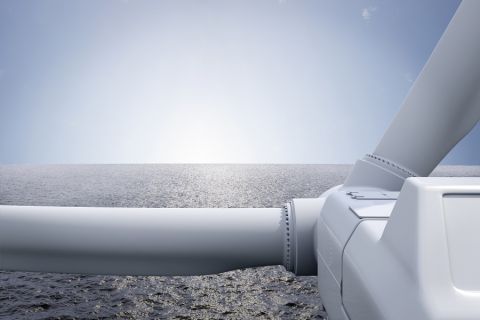HOUSTON—Argentina’s efforts to boost its natural gas output and supply are progressing through new pipeline and transport projects and auctions, moves that are expected to balance the country’s production and demand, the energy secretary said on March 11.
Pipeline construction contracts valued at up to $1.8 billion to transport natural gas from Argentina’s largest producing region, Vaca Muerta, to Buenos Aires, could be awarded by September, Minister Gustavo Lopetegui said during a briefing at the CERAWeek by IHS Markit conference in Houston.
The two phases of the pipeline could move up to 40 million cubic meters of production per day, more than half Vaca Muerta’s current gas production.
The Vaca Muerta shale play will require future investment of between $5 billion and $10 billion per year, from $4.3 billion, now to accelerate its growth, Lopetegui said.
At least four projects in Vaca Muerta have passed from pilot phase to commercial development in recent months, he added. One incentive is the crude quality, which makes it exportable. Vaca Muerta’s crude production is expected to reach 100,000 bbl/d in the second half of the year versus 80,000 bbl/d currently.
The country also plans monthly auctions for offering domestic gas and will launch in May a separate four-year gas auction for offering winter gas at prices indexed to imported LNG.
Argentina is a net gas producer with most output coming from Vaca Muerta, one of the world’s largest reserves of shale oil and gas. The nation now imports natural gas through a pipeline from Bolivia in a contract recently renegotiated to set seasonal pricing and supply, and it buys costly LNG to cover its needs during the winter.
Argentina also recently took advantage of growing domestic gas production to resume gas exports to Chile and Brazil and is working to make the exports routine, he said.
To continue growing, Vaca Muerta needs greater investment in exploration and production and in pipelines, storage terminals, and railways to transport and ship crude and gas.
“Vaca Muerta must grow harmonically so it is possible to produce, transport and sell without problems,” the secretary said, adding that some producers have achieved large production cost reductions, overcoming one of the play’s biggest obstacles to growth in recent years.
Argentina started having an energy trade imbalance in 2011, which has been shrinking in recent years as domestic crude and gas production grows, gas exports resume and subsidies ease.
The country has even started foreseeing possible LNG exports from Argentina or neighboring Chile if gas production continues growing.
Recommended Reading
Diamondback, Verde Plan Converting Permian Natgas to Gasoline
2024-02-13 - Diamondback Energy subsidiary Cottonmouth Venture LLC has entered into a joint development agreement with Verde Clean Fuels to build a natural gas-to-gasoline facility in the Permian Basin.
US Proposes Second GoM Wind Lease Auction
2024-03-20 - Combined, the four proposed areas for offshore wind have the potential to power about 1.2 million homes if developed, according to the Interior Department.
TotalEnergies Expanding Orange Basin Presence
2024-03-06 - The new acreage offshore South Africa is on trend with the Venus discovery offshore Namibia.
Hess Pushes Shareholders to Vote in Favor of $53B Chevron Merger
2024-04-01 - Hess Corp.’s board is unanimously recommending its shareholders vote in favor of the proposed $53 billion all-stock merger with Chevron Corp., according to Chevron’s March 28 Securities and Exchange Commission filing.
E&P Highlights: Feb. 12, 2024
2024-02-12 - Here’s a roundup of the latest E&P headlines, including more hydrocarbons found offshore Namibia near the Venus discovery and a host of new contract awards.





